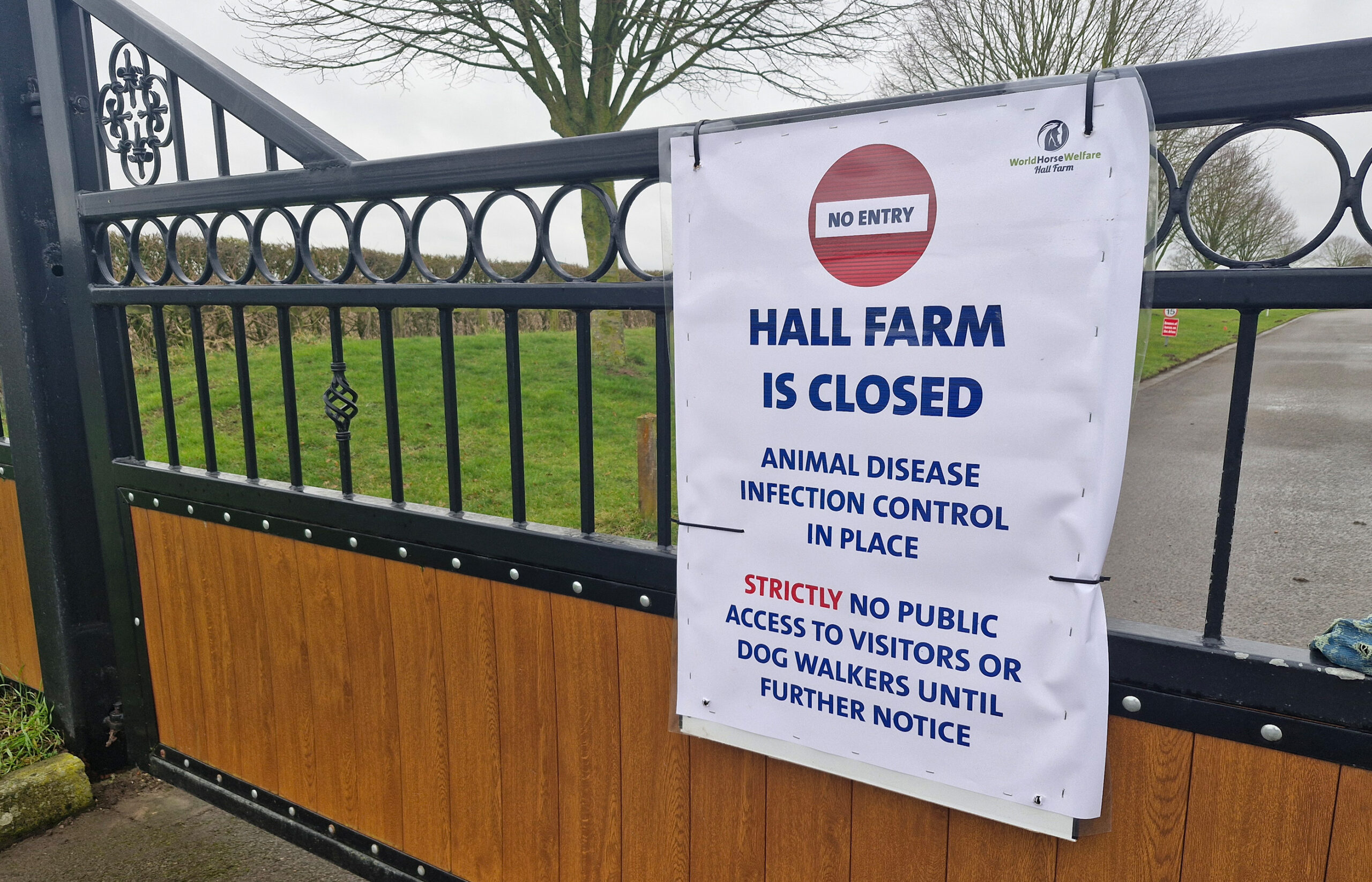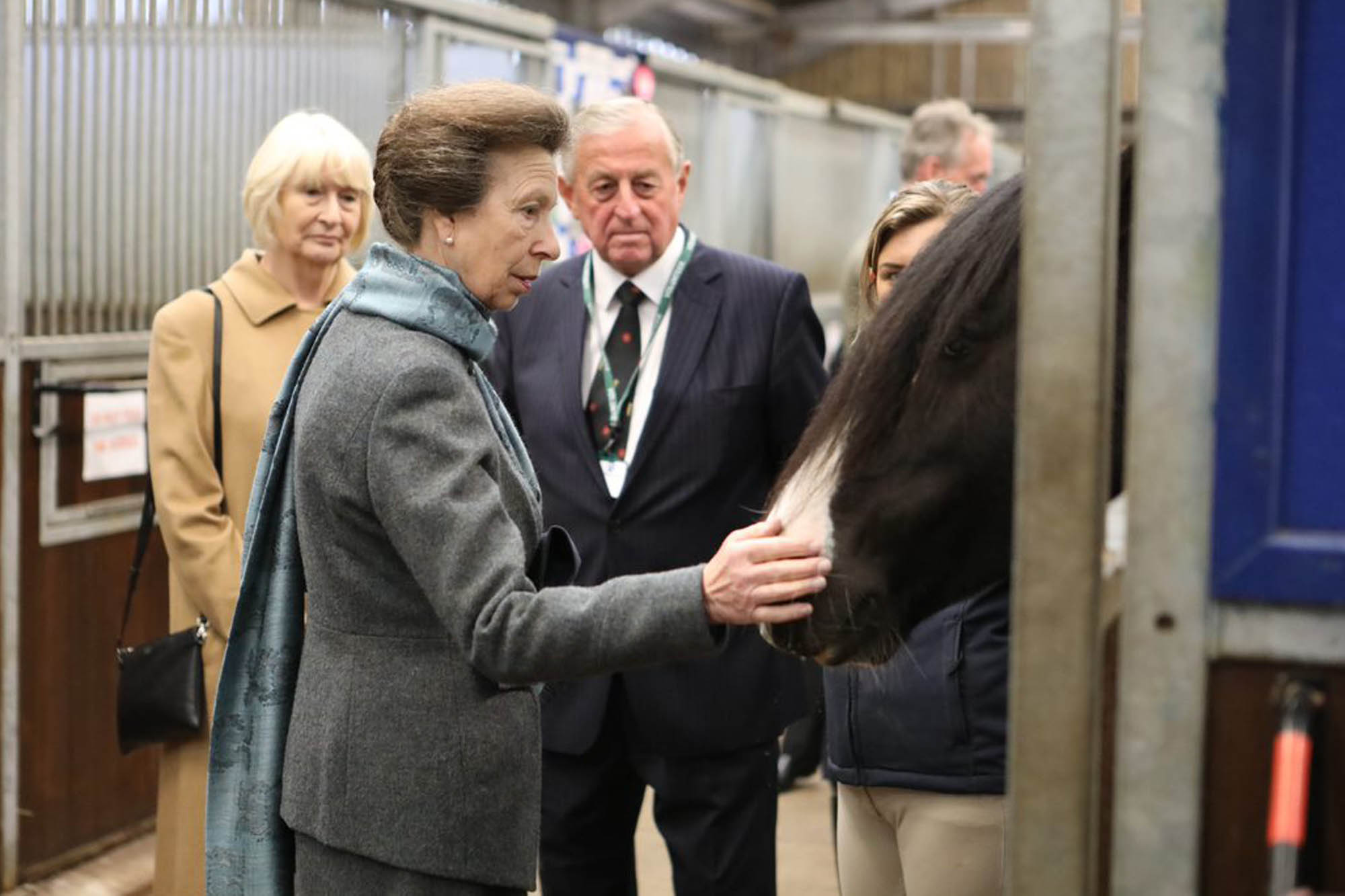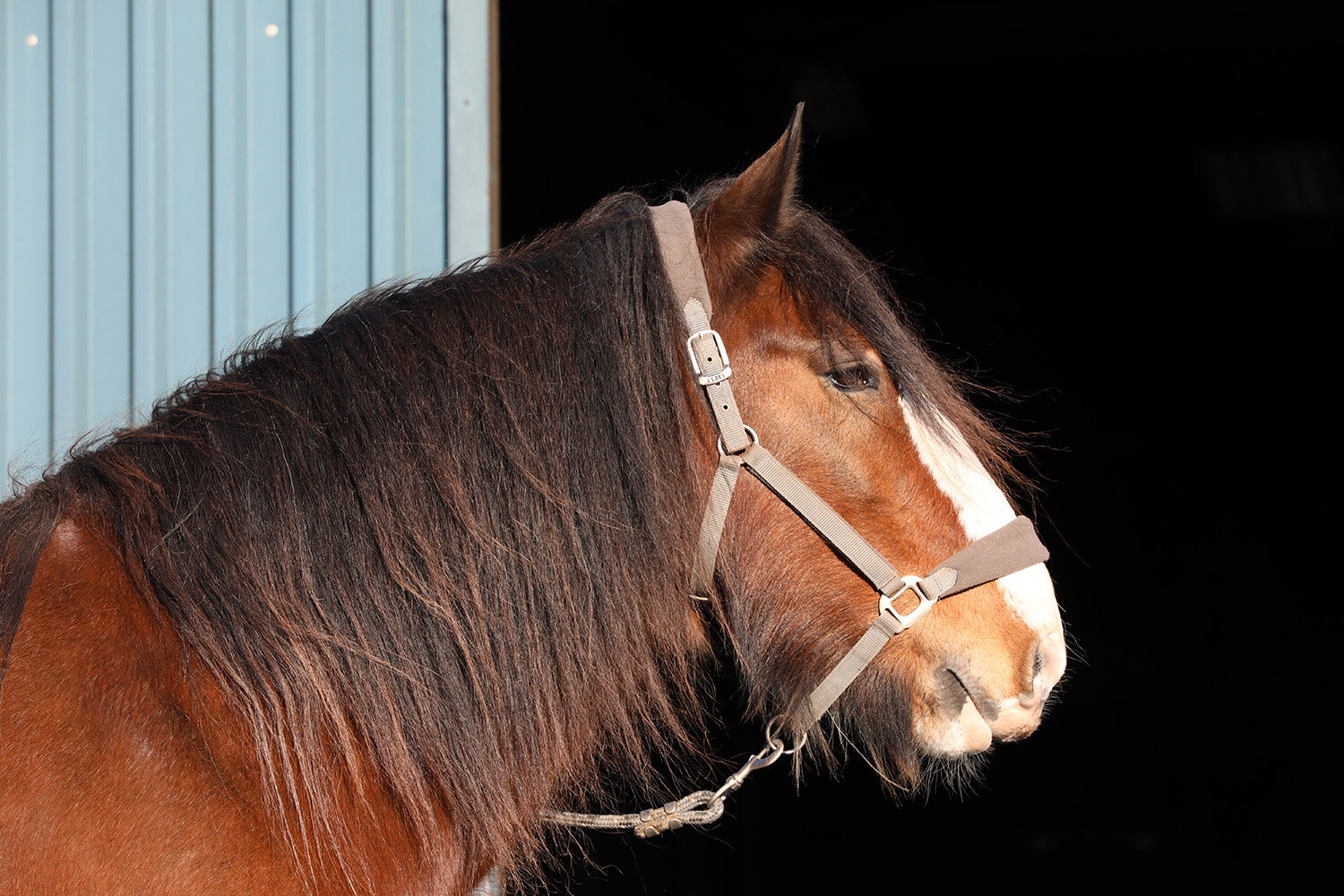Our Norfolk farm temporarily closes to visitors
Our Norfolk rescue and rehoming centre closes to the public as more cases of strangles are detected.
Posted on 20/02/2025

Following a recent case of strangles – a highly infectious respiratory disease of horses – at our Hall Farm Rescue and Rehoming Centre in Snetterton, Norfolk, the movement of horses both in and out of the farm was suspended last week as is protocol to prevent the disease from spreading.
However, further cases on the farm have led to the closure of Hall Farm to visitors as an additional precautionary measure.
World Horse Welfare’s Director of UK Support, Malcolm Morley said:
“Given the nature of the horses World Horse Welfare helps, cases like this are not unexpected, and the team have well-rehearsed biosecurity measures to mitigate the risk of disease spread.
“Whilst the risk of strangles spreading off the farm by visitors is extremely low, we felt we should take this additional step and close our doors to visitors whilst we investigate.
“We would like to apologise to everyone who had planned to visit Hall Farm this half term and reassure those who have visited recently that the disease poses no risk to humans.”
Strangles is not a notifiable disease but due to its prevalence and the fact it is so infectious, we are taking robust action to bring its spread to a halt and protect the wider equine population.
Read more about strangles on our advice page.
Topics
Related News

Expanded Penny Farm Visitor Centre receives royal stamp of approval – “Now it can play an even bigger role”
World Horse Welfare President HRH The Princess Royal formally opens expanded facilities at popular Lancashire attraction.

Glenda Spooner Farm kicks off summer fun
The team has planned lots of family-friendly days out, from a teddy bears' picnic to hobby horse events and more.
Recommended Blog Posts

We catch up with gentle giant Seamus in his new home
Rehomer Nikky tells us what life is like with Clydesdale Seamus and how he is settling in with his new companion Puddin.

Let’s put the horse’s perspective at the centre when making rules for horse sport
We reflect on the FEI’s new ‘blood rule’ in showjumping.

2025 in review: highs and lows in the world of welfare
Our Chief Field Officer Claire Gordon reflects on the challenges and successes 2025 has brought for the welfare sector.
Enjoy reading stories like this?
Join over 65,000 other horse lovers and sign up for our email newsletter

Join over 65,000 other horse lovers and sign up for our email newsletter
Sign me up now